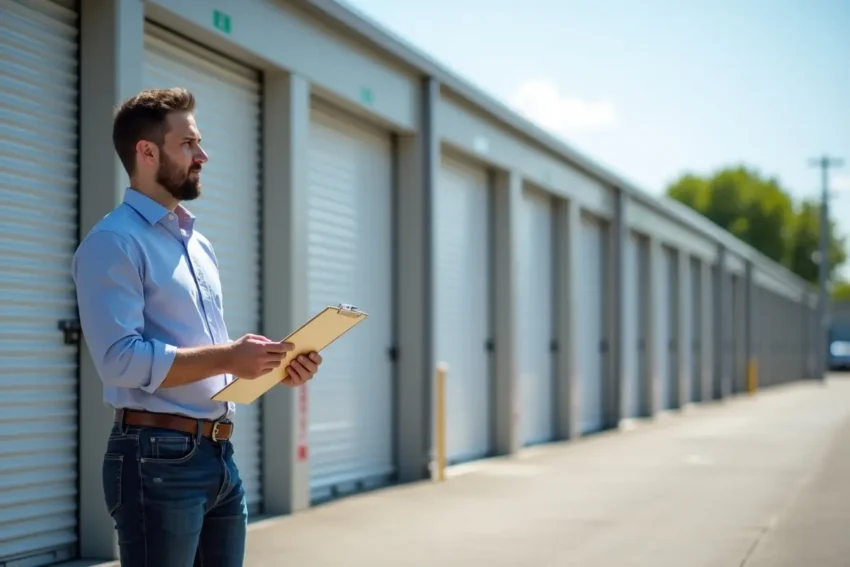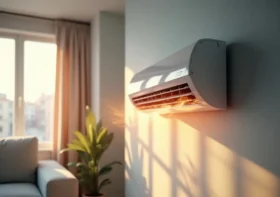The Ultimate Guide to Self-Storage: Everything You Need To Know

Whether you are moving, downsizing, or simply in need of extra space to store your belongings, self-storage becomes the go-to solution for many. This flexible option offers people the chance to keep their possessions safe and secure in a dedicated space, accessible on their terms. With the variety of self-storage options available, it is crucial to understand what they offer and how to make the best choice for your specific needs.
Choosing the Right Self-Storage Unit for Your Needs
Identifying the appropriate size and type of self-storage unit can be daunting. It’s essential to assess the quantity and size of items you wish to store, as units range from small lockers to large spaces that can accommodate furniture and vehicles. Understanding how much space you need is the first step in optimizing the cost-effectiveness of renting a storage unit.
The location of the storage facility is another critical factor to consider. Units located in urban centers may be more expensive but offer convenience and accessibility. On the contrary, facilities on the outskirts of town might be less costly and could be a viable option for those who do not require frequent access to their stored items.
Duration is yet another aspect to contemplate when selecting a storage unit. Some facilities offer flexible month-to-month leases, while others might provide discounts for long-term commitments. Be sure to evaluate how long you plan to use the storage unit to ensure you are getting the best deal possible.
Depending on the types of items you are storing, climate-controlled units may be worth considering. These specialized units maintain a consistent temperature and humidity level, protecting sensitive items such as electronics, artwork, and musical instruments from damage due to environmental factors.
Self-Storage Features and Amenities to Consider
Going beyond the basic size and location, various features and amenities can enhance your self-storage experience. Drive-up access can be a significant convenience for those who frequently move items in and out of their units, while elevators and dollies are indispensable in multi-story facilities. Some units even offer power outlets within, facilitating businesses to operate directly out of the storage unit.
Security is a top priority for many renters, and facilities often offer a range of security features. Gated access, individual alarm systems for units, and 24/7 surveillance cameras are common offerings that reassure customers their belongings are safe. It’s advisable to visit potential facilities in person to gauge the security measures firsthand.
For sensitive items, as mentioned earlier, climate-controlled units are a crucial amenity that should not be overlooked. These units can prevent wear and tear on delicate items and ensure that extreme temperatures do not damage your possessions. Additionally, well-lit pathways and corridors improve safety and visibility during access, especially during evening hours.
Customer service should not be underestimated when choosing a self-storage facility. A helpful and responsive staff can make a significant difference, particularly when you need assistance or encounter any issues. Looking for reviews and testimonials can provide insights into the level of service provided by the facility.
Navigating Self-Storage Agreements and Insurance Options
Before signing a rental agreement for a storage unit, it’s crucial to read the terms and conditions thoroughly. Understanding the facility’s policies on payment, late fees, and the process for vacating the unit will help avoid any misunderstandings or unforeseen costs. Ensure that the contract clearly outlines all fees, access hours, and any rules about the items you can store.
Self-storage insurance is an essential consideration for renters. While facilities often have their own insurance, it typically covers the property, not your belongings. Renters are usually responsible for insuring their items either through their homeowner’s or renter’s policy or by purchasing a separate storage insurance policy. Be sure to check the coverage details and limitations before making a decision.
Documenting the condition of your items before storing them is a good practice. Taking photos and keeping a detailed inventory provides a clear record that can be essential in the event of an insurance claim. It’s also wise to ask about any protection plans or warranties offered by the storage facility as an added layer of security for your possessions.
In the event of a dispute or damage to your belongings, understanding your rights and the facility’s responsibilities is fundamental. Knowing who to contact and the process for filing claims can expedite solutions and ensure you’re adequately compensated for any losses.
Overall, self storage in Clifton, NJ offers a versatile solution for those in need of extra space. When chosen wisely, a storage unit can act as your personal extension of home, providing a secure place for your cherished items.



